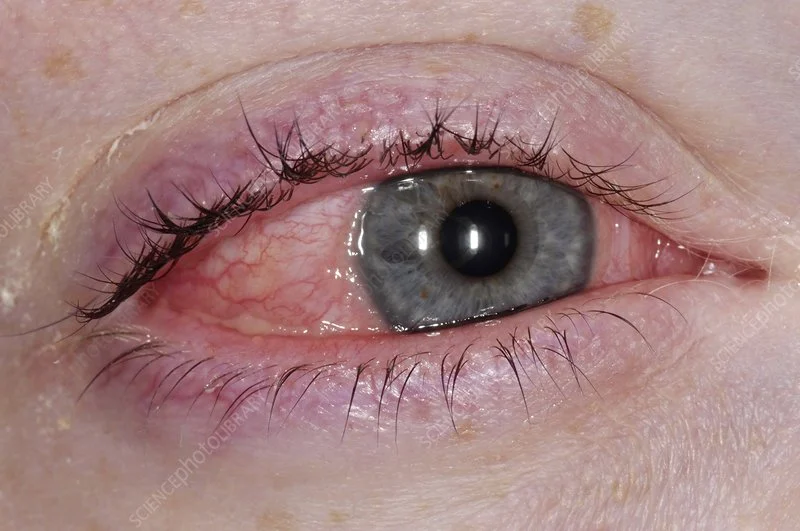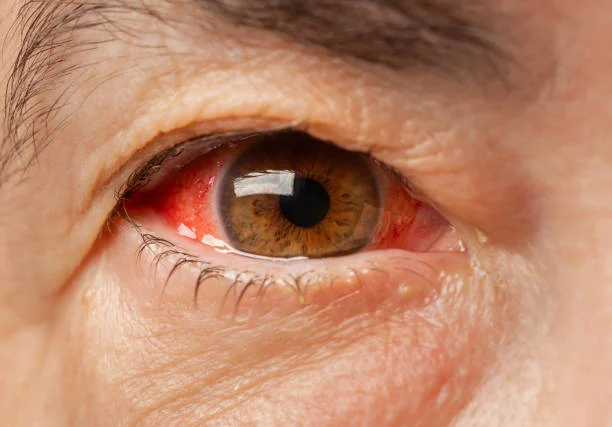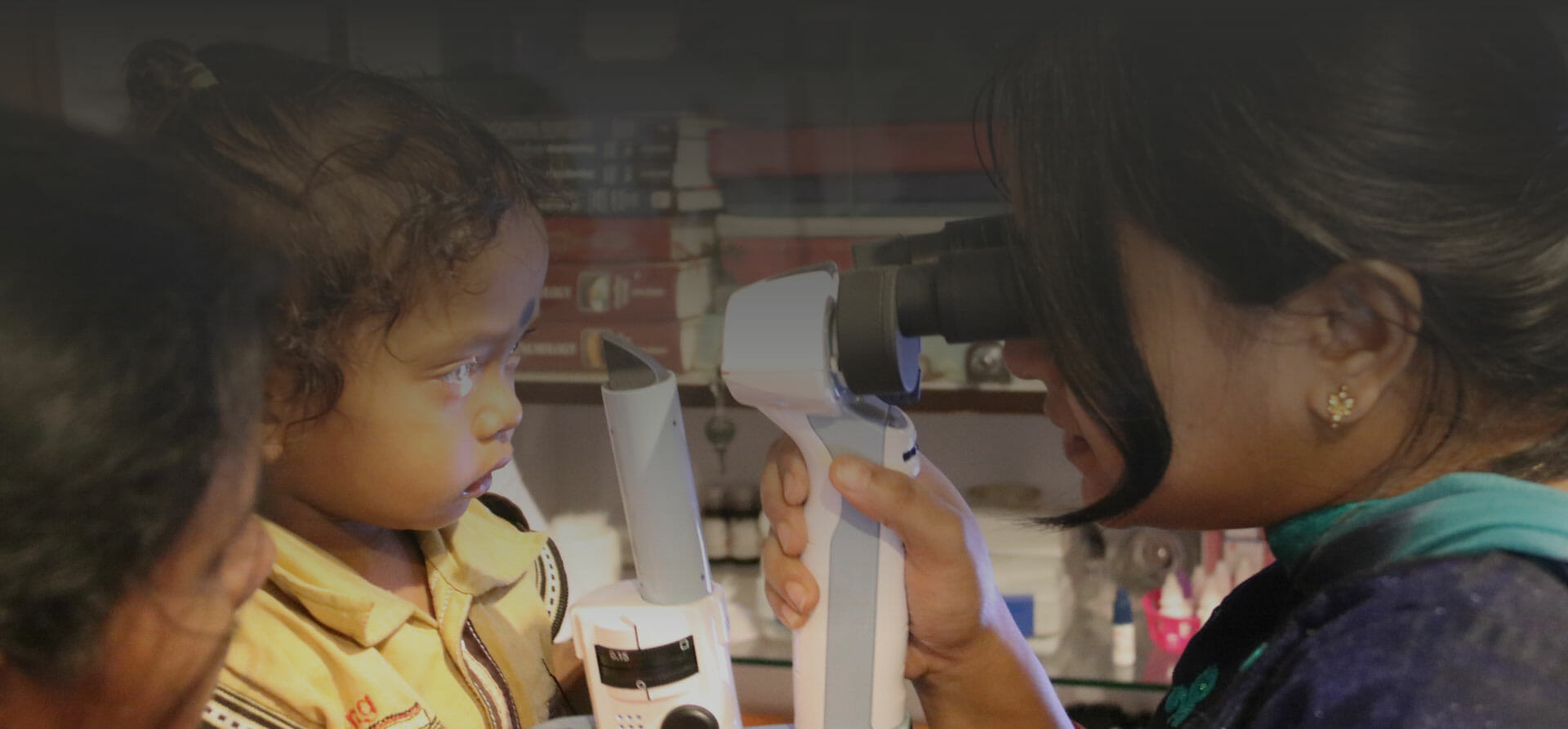Are your eyes itchy and red? You might be dealing with allergic conjunctivitis. In this blog, we’ll dive into everything you need to know about this common eye condition. From what triggers it, to how you can recognize its symptoms, and what you can do to treat it, we’ve got you covered. Let’s get to the bottom of those annoying eye symptoms and find some relief!
Contents
What is Allergic Conjunctivitis?
Allergic conjunctivitis is a type of eye inflammation that happens when your eyes react to allergens, which are substances that irritate your body. Common allergens that can affect your eyes include: pollen from trees and grass, dust mites, pet dander, and molds. When these allergens come into contact with your eyes, they can cause them to become red, itchy, and watery. This is your immune system’s way of responding to what it thinks is a threat. Allergic conjunctivitis is quite common and can happen seasonally, especially during high pollen times, or it can occur year-round if you’re sensitive to indoor allergens like dust and pet fur.
Common Causes of Allergic Conjunctivitis

Allergic conjunctivitis is triggered by various allergens that can irritate the eyes. Understanding these triggers is essential for managing and preventing symptoms effectively. Here are the common allergens and environmental factors that can lead to allergic conjunctivitis:
- Grass, weed, and tree pollen
- Tiny creatures found in bedding, upholstered furniture, and carpets
- Pet dander, which is tiny flakes of skin shed by animals, can lead to allergic reactions
- Mold spores floating in the air
- Besides allergens, other environmental irritants like smoke, chlorine, and certain chemicals can also cause symptoms similar to allergic conjunctivitis
Understanding these triggers and how they interact with your environment can help you manage and reduce the occurrence of allergic conjunctivitis, ensuring more comfortable, clearer vision throughout the year.
Symptoms of Allergic Conjunctivitis

Allergic conjunctivitis can cause a variety of symptoms that may interfere with your daily activities. Here’s a list of common symptoms associated with this condition:
- Redness in one or both eyes
- Itching that often feels intense
- Increased tear production, leading to watery eyes
- Swelling of the eyelids
- Sensitivity to light
- Gritty feeling in the eyes
- Discharge from the eyes that may be watery or mucous-like
- Burning sensation in the eyes

Your Help Can Make a Difference!
Cataract Is The Biggest Reason For Blindness!
With Every Donation, You’re Gifting a Cataract Surgery To Someone in Need!
Diagnosing Allergic Conjunctivitis
Diagnosing allergic conjunctivitis involves a series of steps that help healthcare professionals determine the cause of eye irritation. Here’s how doctors typically diagnose this condition:
- Patient History: The doctor will start by asking about your medical history, focusing on any previous incidents of allergies or eye issues. They’ll also inquire about your exposure to potential allergens and the timing of your symptoms.
- Symptom Analysis: The healthcare provider will examine the specific symptoms you’re experiencing, such as redness, itching, and discharge. They will assess these symptoms to see if they align with common patterns of allergic conjunctivitis.
- Physical Examination: An examination of the eyes is conducted to observe signs like eyelid swelling, redness in the whites of the eyes, and any discharge. A slit-lamp microscope might be used to examine the eyes in detail.
- Allergen Testing: If the cause of conjunctivitis is not clear from history and physical examination, allergen testing might be recommended. Skin or blood tests can help identify specific allergens that you might be reacting to.
- Exclusion of Other Conditions: Part of the diagnostic process may involve ruling out other types of eye infections, such as bacterial or viral conjunctivitis, which can exhibit similar symptoms but require different treatments.
These diagnostic steps enable healthcare providers to accurately identify allergic conjunctivitis and recommend appropriate treatments to alleviate the symptoms.
Treatment Options for Allergic Conjunctivitis
Allergic conjunctivitis can be uncomfortable, but there are several effective treatment options available to manage and alleviate symptoms. Here’s a comprehensive look at the various strategies for treating this eye condition:
Over-the-Counter (OTC) Treatments
- Antihistamine Eye Drops: These can quickly alleviate itching and redness by blocking the action of histamine, which is the substance that triggers allergic reactions.
- Artificial Tears: Lubricating eye drops help to wash away allergens from the eyes and moisten the eyes, which can relieve discomfort and irritation.
- Decongestant Eye Drops: These can reduce eye redness; however, they are generally recommended for short-term use only, as long-term use can cause a rebound effect.
Prescription Medications
- Antihistamine/Mast Cell Stabilizer Eye Drops: These drops not only provide quick relief from itching but also help prevent the release of histamine and other chemicals from mast cells, reducing future allergic reactions.
- Corticosteroid Eye Drops: Used for more severe cases, these drops reduce inflammation but must be used under close medical supervision due to potential side effects.
- Oral Antihistamines: While these can help with wider allergy symptoms, they sometimes exacerbate eye dryness.
Lifestyle Modifications
- Avoid Allergens: Identifying and avoiding the allergens that trigger your symptoms is crucial. This might involve staying indoors on high pollen days or keeping windows closed.
- Cold Compresses: Applying a cold cloth to your eyes can reduce swelling and soothe the itchy and burning sensations.
- Proper Hygiene: Regularly washing your hands and face can help remove allergens. Avoid rubbing your eyes, which can worsen symptoms.
Environmental Controls
- Air Filters: Using air purifiers with HEPA filters can reduce indoor allergens like pet dander and dust mites.
- Control Humidity: Reducing humidity in the home can help prevent the growth of mold, which can trigger allergies.
Allergen Immunotherapy
- Allergy Shots or Drops: In cases where symptoms are chronic and significantly affect quality of life, allergen immunotherapy may be considered. This long-term treatment involves exposing the body to small amounts of allergens to build up tolerance.
The appropriate treatment plan will depend on the severity and frequency of your symptoms and any other allergies you might have. It’s important to consult with a healthcare professional to determine which treatments are best for your specific situation.
Home Remedies and Self-Care Measures

Managing allergic conjunctivitis often involves simple home remedies and self-care measures that can significantly alleviate symptoms. Here are practical steps you can take:
- Cold Compresses: Apply a clean, damp cloth that’s been chilled in the refrigerator to your eyes several times a day to soothe irritation and reduce swelling.
- Avoid Known Allergens: Stay away from allergens that trigger your symptoms. This could mean keeping windows closed during high pollen seasons or minimizing exposure to pet dander and dust.
- Maintain Good Eye Hygiene: Wash your hands frequently and avoid rubbing your eyes to prevent spreading allergens and irritating your eyes further.
- Wear Sunglasses Outdoors: Sunglasses can help shield your eyes from pollen, dust, and wind, reducing the chance of allergens entering your eyes.
- Rinse Your Eyes: Gently rinsing your eyes with sterile saline solution can help remove allergens from the eye’s surface.
- Control Indoor Air Quality: Use air purifiers with HEPA filters to reduce airborne allergens in your home environment.
- Change and Wash Linens Regularly: Keep your bedding and towels clean to avoid exacerbating eye allergies.
- Stay Hydrated: Drinking plenty of water helps maintain natural tear production, which is crucial for flushing out irritants.
These self-care tips are easy to implement and can be very effective in managing and reducing the symptoms of allergic conjunctivitis.
Conclusion
Don’t let eye diseases cloud your vision and diminish your quality of life. If you’re experiencing discomfort or symptoms that just won’t go away, it’s crucial not to wait until they worsen. Take action today to safeguard your sight. At the Best Eye Hospital in India, we’re here to help with state-of-the-art care and compassionate experts. Book your free appointment now or call us at +91 9711116605. Your vision is precious—let us help you preserve it for a brighter, clearer future.
